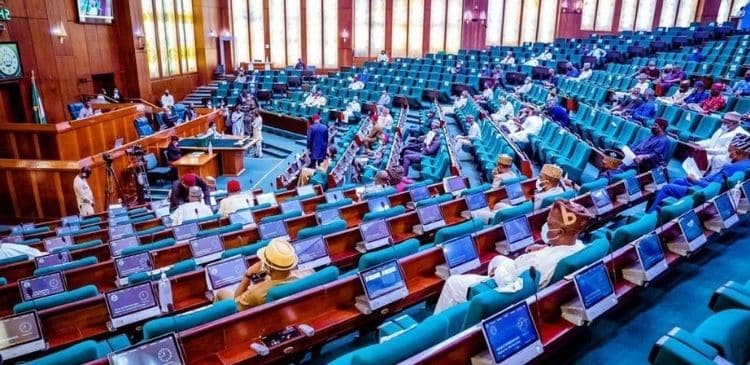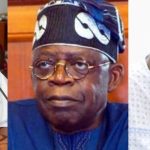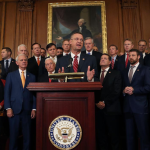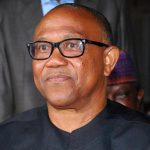Nigeria’s House of Representatives on Tuesday rejected seven constitution alteration bills scheduled for second reading following divergent opinions by members on some of the provisions in the bills, especially those seeking to make constitutional provision for rotation of the office of President and Vice President among the six geopolitical zones
The other proposed legislations rejected by the House includes a bill seeking to strip the Independent National Electoral Commission of powers to register and regulate political parties and another seeking the establishment, independence, and functions of the Offices of State Auditors-General for Local Governments and the Federal Capital Territory Area Councils
The House Minority Whip, Ali Isa representing Balanga/Billiri Federal Constituency of the Gombe state led the opposition to the rotational presidency bill, arguing that the proposed legislation has already been addressed by the Federal Character Commission.
He maintained that the rotation of the office of the president and vice president among the six geopolitical zones should not be a constitutional matter
The minority whip noted that political parties have already deviced mechanisms to give fair and equal representations to various ethnic nationalities during elections.
MUST READ:Constitution Amendment : House Rescinds Alteration Bills On Death Penalty, Immunity
Other members, including Sada Soli, representing Jibia/Kaita federal constituency of Katsina State, and Aliyu Madaki from Kano State argued that adopting the rotational presidency arrangement will be inimical to the progress of the country as it will give room for manipulation by politicians, discourage merit, integrity and throw up leaders without the requisite skills to run the country
They maintained that giving the proposal a constitutional backing will lead to agitations for equity and justice among minority tribes and deny Nigerians the opportunity to choose leaders freely from any part of the country who possesses the needed criteria to run the affairs of government irrespective of their ethnic nationalities, regional considerations or religious backgrounds
On their part, Clement Jimbo, Uduak Odudoh, Bello El Rufai, Shina Oyedeji, and other lawmakers in support of the rotational presidency bill described it as the solution to long-standing issues of injustice and marginalisation of minority ethnic groups in the country arguing that the legislation will guarantee equity, justice, and fairness, allowing those with the needed capacity to contribute to Nigeria’s socio-economic development
For them, no one region have the monopoly of producing good leaders. They noted that every of the six geopolitical zones of the country have bright minds with the needed experience to run the affairs of the country
But these arguments did not stop members from voting against the proposed legislation as the voice vote put forward by the presiding officer got a resounding “nay” from lawmakers.
The bill seeking to strip the Independent National Electoral Commission to register and regulate political parties was knocked out by Obi Aguocha representing Umuahia North/Umuahia South/Ikwuano federal constituency of Abia State. He told his colleagues that the office of the Registrar General of Political Parties proposed in the legislation was unknown to the constitution and, as such, can not be allowed to pass through second reading
Other proposals rejected by members along with the rotational presidency legislation include a bill for the independence and functions of the Offices of State Auditors-General for Local Governments and the Federal Capital Territory Area Councils, which seeks to strengthen fiscal oversight, promote accountability, and enhance good governance at the grassroots level
A bill to increase the number of judges in the Federal High Court to no fewer than 100, or no fewer than that prescribed by an Act of the National Assembly, which provides for expansion of the jurisdiction of the Federal High Court to include admiralty matters, shipping and navigation on the River Niger, River Benue and their tributaries, all federal ports, and carriage by sea
A legislation seeking to empower the National Judicial Council, and the National Salaries, Incomes and Wages Commission, to fix and review the salaries, allowances, and other emoluments of judicial officers and judiciary staff was also among those rejected by members
The House Chairman on Rules and Business, Francis Waive, also saw his proposed alteration bill seeking the creation of Ughelli East Local Government Area in Delta State, rejected.
Efforts by Waive to appeal for a recession of the bills to allow for individual consideration of all seven alterations to the constitution was rejected by members who cited the provisions of the House rule book on recession
The Deputy Speaker, who was the presiding officer for the day’s proceedings, asked the Rules and Business committee to represent some of the alteration bills on Wednesday for consideration by members.
(Editor: Anoyoyo Ogiagboviogie)








